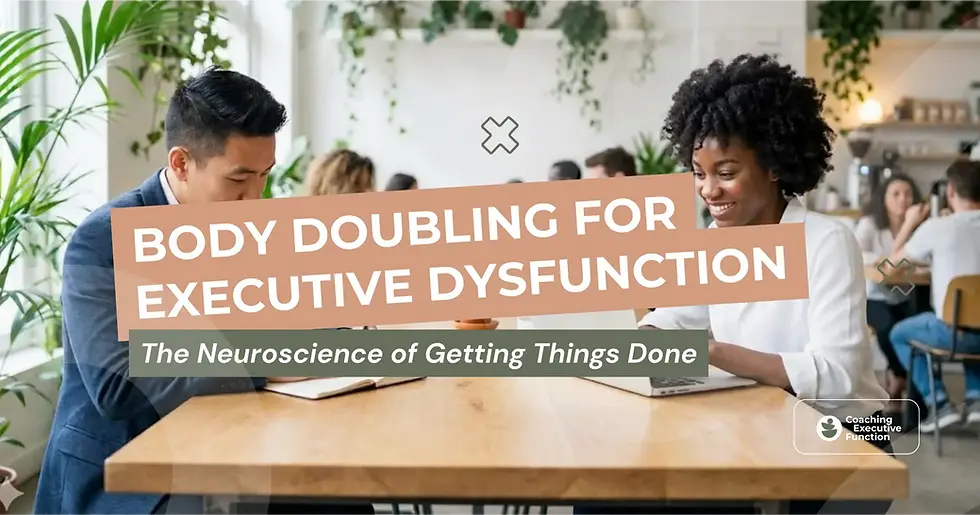Motivation: The Essential Element to Success
- Jan 23, 2022
- 2 min read
Do you find yourself making plans, creating a routine, setting goals, or helping your child do these things, only to lack follow through? Time and time again we go through the effort of tedious prep work, filled with hope that this time it will be different, only to be left frustrated and feeling defeated.
Motivation to engage in and accomplish goals is driven through external motivators. These external motivators are crafted through societal norms and develop our “drive”. Throughout life, neurotypical individuals are constantly observing and determining ideal ways of living. These ideals are shaped by the media, our families, and the greater community. Many children and adults automatically seek to replicate and achieve these ideals. The vision of a desired life, of how we predict we will feel when we accomplish these goals, influences and develops our internal drive and our goal driven behavior.
Without well developed observational skills, imagination, or an ingrained interest in achieving societal norms, individuals can’t imagine this ‘future self’. Lacking this ideal vision and without a threat to one’s survival, an individual is left focusing solely on the present. Although living in the present is something we all strive for, there must be a balance and awareness of the past and future in order to shape our actions, create our drive, and ensure we are able to survive and thrive in this world!
Those with social learning challenges may appear unmotivated, and their parents may feel worried and frustrated, anxious for them to start the next step, to “grow up” and become independent. However, without taking the time to develop a sense of internal motivation, any technique or approach will fail to bring about long lasting change.
Motivation is often viewed as a trait people innately possess or lack, yet quite the opposite is true. The potential to feel motivated is within all of us, and with practice and concrete understanding it can be developed and strengthened. Motivation is created subconsciously in many individuals. Their brains are wired to automatically complete the elaborate and detailed executive functioning process of internalizing ideals, imaging a ‘future self’, determining long term and short term goals, developing action plans, and feeling motivated to achieve their set goals. The good news is that executive functioning competencies can be taught! By concretely examining what is important to the individual’s future and linking time focused behavioral action plans to the accomplishment of personal goals, motivation can be developed.
Starting small and with big rewards new routines are created, new brain wiring is developed and actions are linked with success! An individual learns to create, practice, and achieve action plans using small attainable goals. These accomplishments, and the established and meaningful rewards connected to them, flood a person’s brain with feel good chemicals, creating an environment that encourages future participation and personalized motivation! The brain’s neuroplasticity is truly amazing, and it allows an individual to learn, to find connection and to develop motivation! Long term meaningful progress is driven by internal motivation!













Comments